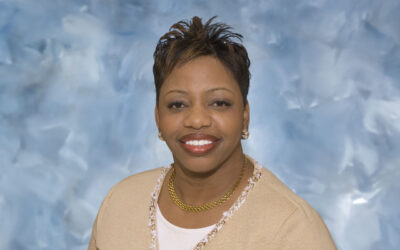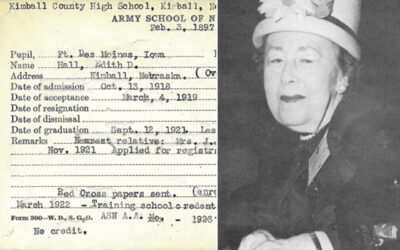By Matt Skoufalos


After undergoing open-heart surgery as a teenager, Susan Boral thought she might someday enter the health care field. Instead, she pursued a degree in environmental science. After graduation, she still felt the pull of nursing. Boral found her interest redoubled after joining a local EMT squad. In 2000, when the job market “wasn’t so great” for environmental scientists, she made a career change.
“I always wanted to help people, but what attracted me to the medical field is the science part of it,” she said; “anatomy, physiology, how our interventions affect the body. It’s the desire to help society [and] the desire to be part of a team.”
Boral signed on to the accelerated career entry (ACE) program at Drexel University in Philadelphia, an 11-month, change-of-career path for bachelor’s-degreed students that she described as a nursing boot camp. It was one of the first alternative nursing tracks in her area. Boral remembered it as very challenging for the intensity of its instruction within a compressed timeline. Yet it didn’t require half the adjustment she made jumping into her first assignment in the emergency room.

“I had a background in EMT, so I had been exposed to [trauma care],” Boral said, but the ER is “that next level.”
“You do more of an investigation,” she said. “It’s exciting. It’s fun to dig deep and figure out exactly what’s going on, and use all my knowledge and resources to get to the bottom of something.”
As an EMT, Boral had been charged with stabilizing patients outside of the hospital environment and handing them off to a nurse; in the ER, she found herself on the admissions side of triage, delivering higher levels of care and diving deeper into diagnosing ailments. Boral started working overnights at Our Lady of Lourdes Hospital in Camden, New Jersey, which at the time was one of the most violent cities in the country. Working collaboratively was important to the success of the unit, and the physicians with which she worked greatly respected their nurses, which made her feel comfortable in a high-stress job.
“[Doctors] relied on us to be their eyes and ears,” Boral said; “[they relied] on a good, strong nursing team to point out things to them, [and to] sort out what’s an emergency versus what can wait. They encouraged autonomy and teamwork.”
Boral’s superiors also encouraged her to advance her schooling, to earn additional degrees, and to take on leadership roles within the hospital. When she switched from overnights to mid-shift, that opened up an opportunity to take on a per-diem role in the MedCom department, which provides standing orders for paramedics. Boral described the assignment as “a lot of downtime interspersed with moments of excitement.”
“Every shift was different,” she said.
Boral worked in the ER for about 12 years before she was offered her current position at Thomas Jefferson University Hospital, a high-volume teaching hospital in Philadelphia, Pennsylvania. She’s spent the past five years working a daytime shift in its employee and student health division. Although the work isn’t as high-intensity as EMT or ER triage, it plays a vital role in infection control and population health, and Boral is part of a small department in a large, rapidly changing institution.

“As much as I loved ER nursing, it was exhausting and I wanted to try something else,” Boral said. “We’re responsible for keeping our employees, students, patients, and volunteers safe and healthy. It’s protecting [our staff], and protecting our patients, and making sure that they’re physically capable to do their job. It’s a different type of nursing.”
Her roles and responsibilities have evolved with her time in the nursing field, Boral said, but she doesn’t let the increasingly digital demands of her job overtake her focus on bedside manner. Being mindful, present, and maintaining the human component of caregiving is one of the biggest challenges she faces – and the digital divide has two sides
“I feel like I spend a significant amount of time on the computer rather than talking directly face to face with my patient,” Boral said. “The need to constantly look at your phone also makes it difficult for a patient to stay present. It’s a new challenge we face to keep the patient engaged.”
To help stay connected to her body and mentally fresh, Boral also became a certified spin instructor. She said the relief she feels from keeping fit is a personal priority as well as an outlet for the stresses of her life. Simply put, taking care of herself gives her the groundwork she needs to be able to care for others.

“It’s important to make sure that you maintain your sense of self as a nurse, because you get completely consumed by it some days when you’re working,” Boral said. “Don’t let your hobbies, health, and relationships suffer because you’re having a rough day at work.”
For as much as her careers in nursing and emergency medicine have intersected throughout her life, no moment may have been as significant as the visit she paid New York City 10 days after the September 11, 2001 attacks. Being at Ground Zero to run support work for the EMT squads “was almost like an out-of-body experience,” Boral said. She described the eerie stillness of the typically lively neighborhoods nearby as feeling “like a post-apocalyptic scene,” and remembered the fine dust from the tragedy that coated everything.
“It’s hard to accept the reality of what happened until you saw it first-hand,” Boral said. “It was a lesson in doing your job despite what you were feeling, despite what was happening around you.”
It was also a formative moment in a career that requires the ability to separate emotional reactions from training, and for Boral, it was an experience that will never leave her mind.
“Nursing has made me a very resilient person; ideally, a grateful person,” she said. “I can handle anything.”









